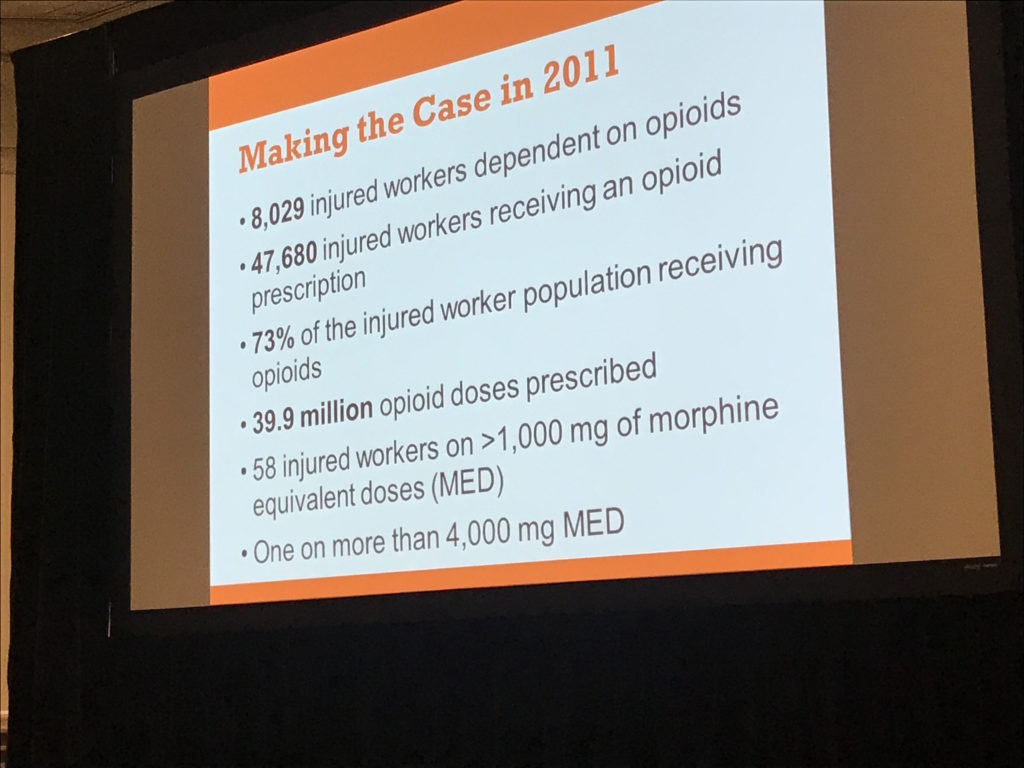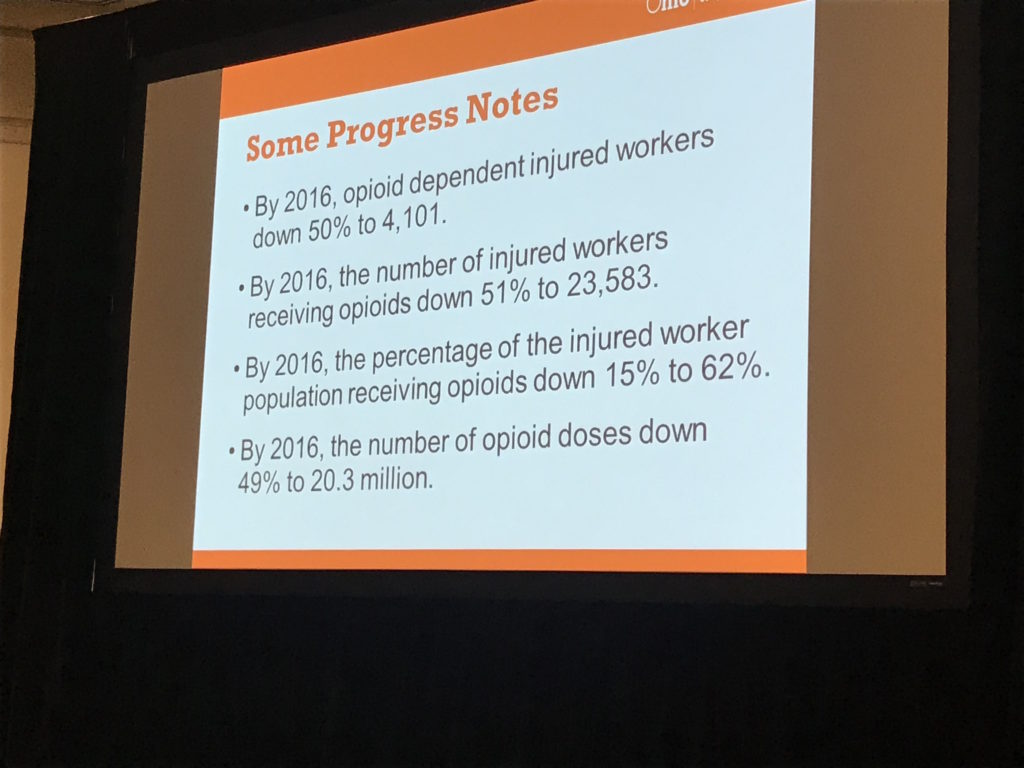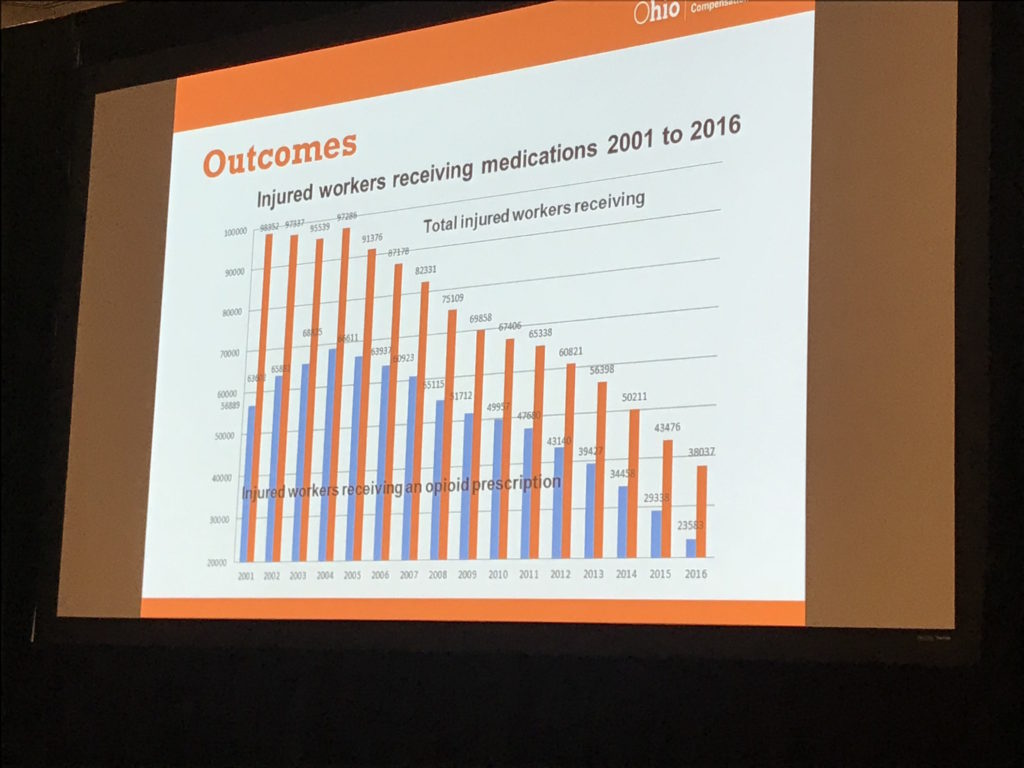It can be done. And it is being done – by a state governmental agency, no less.
Ohio BWC (the state workers’ comp fund in Ohio)’s Medical Director gave background on just how bad things were at BWC in 2011, before just-hired pharmacy director John Hanna took over. 
One patient was taking 4000 Morphine Equivalents per day.
40 million opioid doses prescribed in one year.
After five years, the number of opioid dependent patients, opioid doses, and patients taking opioids were all cut in half.
Here’s an even better view…
Ohio allows for treatment of opioid dependence for 18 months without it being allowed in the claim.
I can’t say enough about what Ohio BWC has done. While the data is telling indeed, I think of the families that are still intact, the moms and dads still alive, the employers still staffed by able and capable workers, the first responders somewhat less stressed.
Thank you, John Hanna, Dr Steve Woods, Dr Nick Trego, and Dr Terence Welsh – and your bosses at BWC and in state government, including Gov Kasich (R).




Ohio is blessed with having a monopoly and can effectively call the shots. Not so in other states (except Washington, which also has a great record in opioid reduction). Most states have to struggle with an IME or UR process which usually leads to litigation, or struggle to legislate or regulate a medical guideline mandate.
It’s good to be the king. That said, there is always more that can be done.